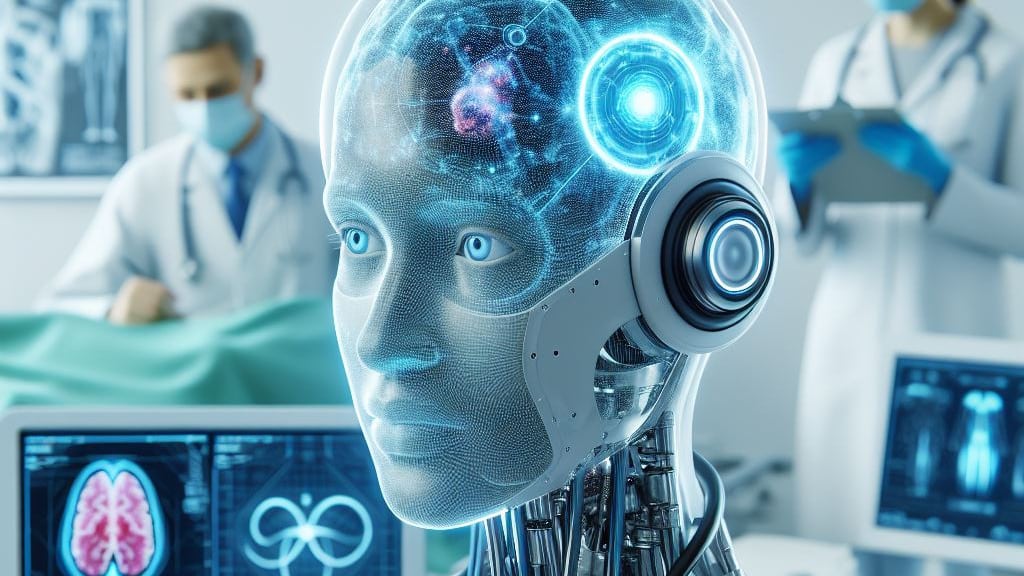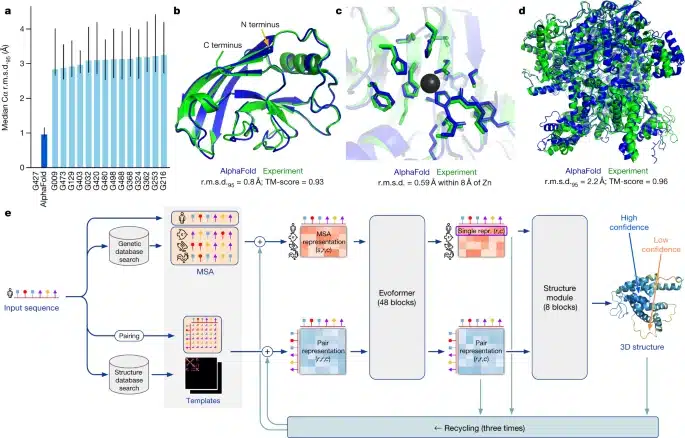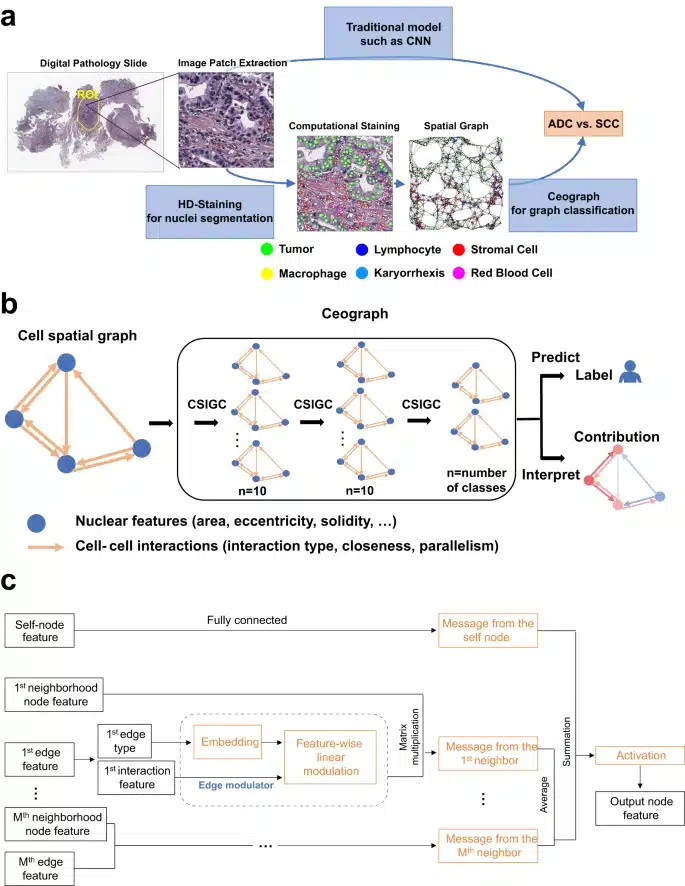Top 5 AI Large Language Models That Transformed Medicine and Healthcare in 2023


In Brief
Among LLMs that emerged in 2023, here’s our top 5 picks that hold the potential to reshape the medical landscape in the near future.

Considering the numerous strides made by artificial intelligence (AI) in 2023, the technology remained a focal point of global interest. AI found applications in nearly every domain, with one of its noteworthy and practical implementations being in healthcare and medicine.
The incorporation of Large Language Models (LLMs) has initiated a transformative phase in this realm, delivering unparalleled capabilities in tasks spanning diagnostic analysis to treatment predictions. Tailored specifically for healthcare applications, LLMs utilize extensive datasets and intricate algorithms to analyze medical information, supplying valuable insights for both practitioners and researchers.
Whether aiding in drug discovery, transcribing medical documents or assisting in surgical procedures, AI is revolutionizing the daily practices of medical professionals, mitigating errors, and enhancing overall efficiency.
Among the most notable LLMs that emerged in 2023, five particularly interesting revelations stood out, holding the potential to reshape the medical landscape in the future.
Med-PaLM 2
Google Research developed Med-PaLM specifically for medical applications, providing accurate responses to medical inquiries. This model utilizes Google’s advanced Language Models and stands out as one of the pioneering models to attain human expert-level performance in addressing USMLE-style questions.
During evaluations, Med-PaLM showcased proficiency in symptom comprehension, intricate reasoning, and treatment selection, achieving an 86.5% accuracy rate on the MedQA medical exam benchmark in research. Despite these promising capabilities, researchers aim to conduct more thorough assessments to guarantee the model’s suitability for deployment in safety-critical domains.
MedLM
MedLM is a collection of fundamental models created by Google, specifically tailored for applications in the healthcare domain. Within the MedLM suite, two models are strategically crafted to handle intricate tasks efficiently across various domains. These models aim to streamline processes, enhance efficiency and contribute to overall patient well-being through task automation.
Notably, Google’s research team partnered with Deloitte to test the capabilities of MedLM. Additionally, integration with other AI systems, such as ASCEND by BenchSci, has been implemented to elevate the standard and pace of clinical research and development.
AlphaFold
AlphaFold is an advanced AI model engineered by DeepMind, and exhibits the capability to forecast the 3D configuration of proteins based on their amino acid sequences. In collaboration with EMBL’s European Bioinformatics Institute (EMBL-EBI), DeepMind has introduced a comprehensive database featuring over 200 million AI-generated predictions of protein structures, aimed at supporting scientific investigations.
AlphaFold’s exceptional performance in CASP14 surpassed other models significantly, showcasing high accuracy in its outcomes. Furthermore, its potential lies in aiding researchers in comprehending protein structures, thereby contributing to the progress of biological research.

ChatGLM-6B
MedConvo is a bilingual model (Chinese-English) specifically tailored using a dataset of medical dialogues in Chinese. Achieving fine-tuning within a brief timeframe (13 hours) has rendered it a cost-effective language model for healthcare applications.
Notably, the model boasts an extended sequence length, enabling it to accommodate more extended conversations and diverse applications. Training techniques such as supervised fine-tuning and RLHF contribute to enhanced comprehension of human instructions, resulting in remarkable dialogue and question-answering proficiencies.
Ceograph
Ceograph is a model developed by UT Southwestern Medical Center, and illustrates its proficiency in predicting outcomes for cancer patients by analyzing tissue samples. The Ceograph LLM excels in generating intricate maps, facilitating the examination of cell arrangement, distribution and interactions. This marks a significant advancement in leveraging AI to replicate the nuanced expertise of human pathologists.
Trained on diverse datasets comprising pathology images of various cancer subtypes, the Ceograph is adept at distinguishing between two subtypes of lung cancer, forecasting the likelihood of oral conditions progressing into cancer, and identifying lung cancer patients with a higher probability of responding positively to specific medications. In each of these applications, the Ceograph model consistently surpasses traditional methods in predicting patient outcomes.

Delving into the cutting-edge advancements in AI for healthcare, the selection of new tools represents a significant evolution of AI technology in the medical domain. Covering a spectrum of applications from diagnostic analysis to treatment predictions, these AI models showcase the potentially transformative impact of AI on the medical field.
Disclaimer
In line with the Trust Project guidelines, please note that the information provided on this page is not intended to be and should not be interpreted as legal, tax, investment, financial, or any other form of advice. It is important to only invest what you can afford to lose and to seek independent financial advice if you have any doubts. For further information, we suggest referring to the terms and conditions as well as the help and support pages provided by the issuer or advertiser. MetaversePost is committed to accurate, unbiased reporting, but market conditions are subject to change without notice.
About The Author
Alisa, a dedicated journalist at the MPost, specializes in cryptocurrency, zero-knowledge proofs, investments, and the expansive realm of Web3. With a keen eye for emerging trends and technologies, she delivers comprehensive coverage to inform and engage readers in the ever-evolving landscape of digital finance.
More articles

Alisa, a dedicated journalist at the MPost, specializes in cryptocurrency, zero-knowledge proofs, investments, and the expansive realm of Web3. With a keen eye for emerging trends and technologies, she delivers comprehensive coverage to inform and engage readers in the ever-evolving landscape of digital finance.


















































